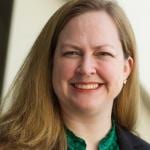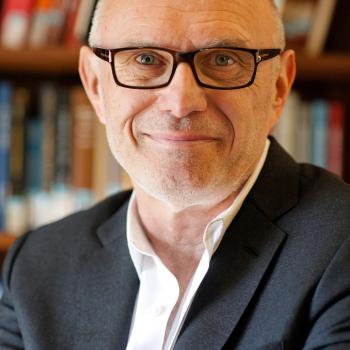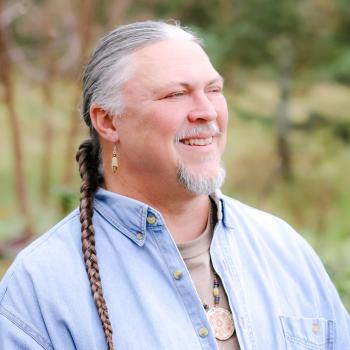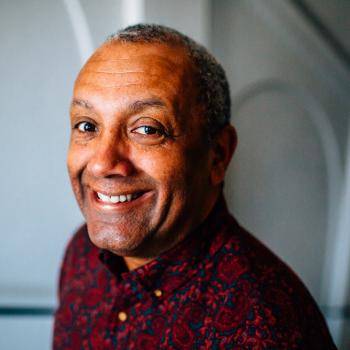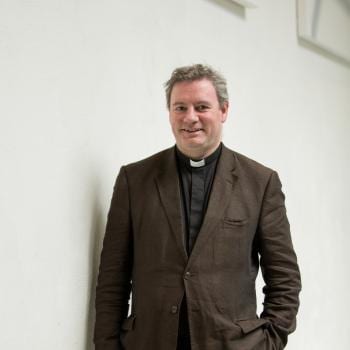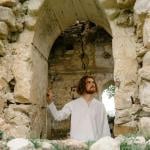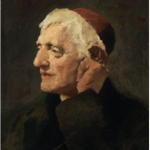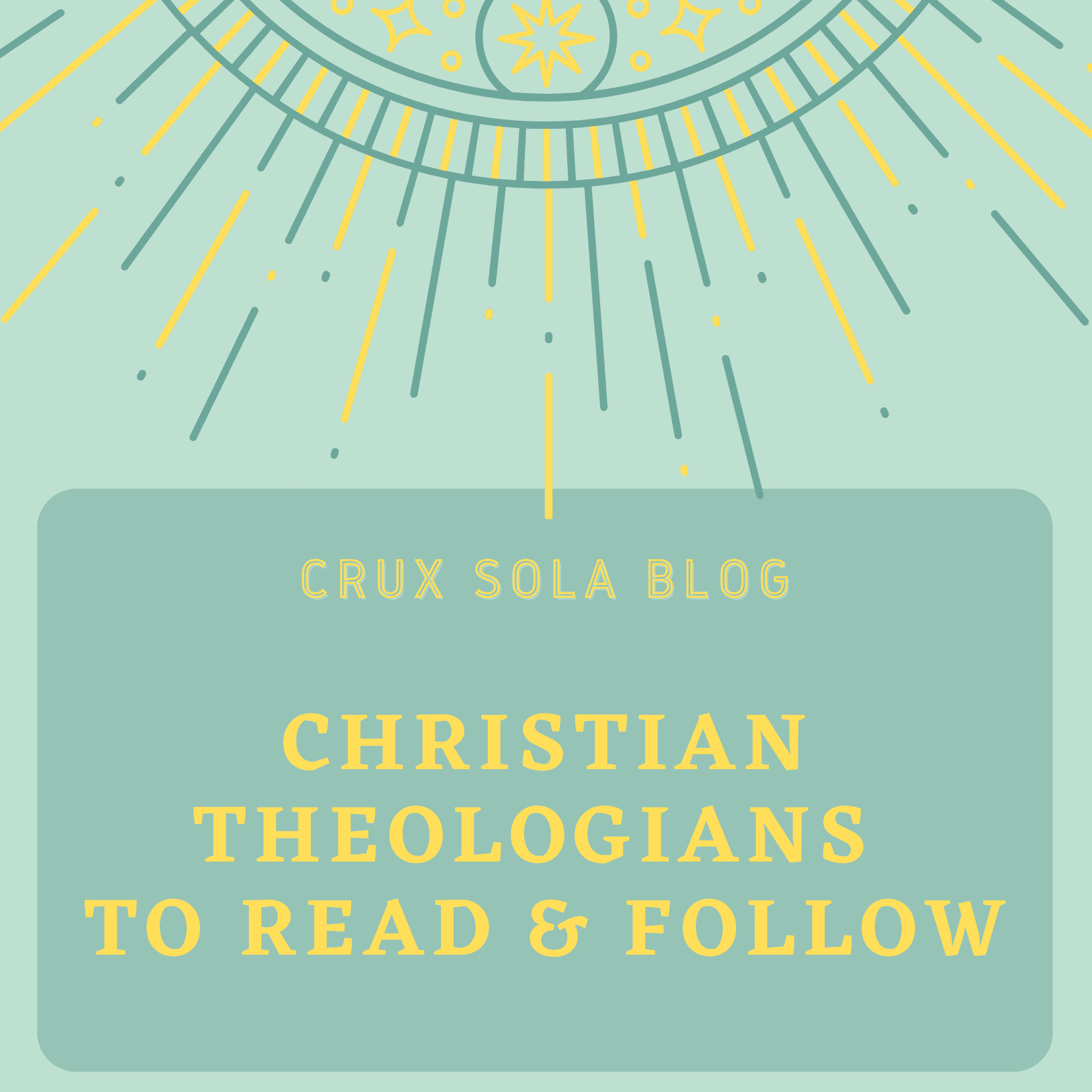
Oliver Crisp, Professor of Analytic Theology and Director of the Logos Institute, School of Divinity, University of St Andrews

Why do you love teaching and researching about Christian theology?
I have always been drawn to the big existential questions in life. Why is there something rather than nothing? Where did the world come from? Is there any meaning to life? Is there life after death? Is there a god? Christian theology addresses the big questions. I didn’t know about philosophy as a teenager. That came later. My concerns were initially religious and existential. Theology helped me channel these concerns in a productive direction. So I love thinking about, writing on, and teaching the big issues raised by Christian theology. These include questions of method and approach to “God talk.” But it also involves thinking hard about central theological questions, such as the Trinity, Incarnation, sin, and atonement. In fact, I’ve spent much of my career focused on precisely these matters.
What is one “big idea” in your scholarship?
I suppose the “big idea” I am best known for is analytic theology, although some years ago I wrote a book called Deviant Calvinism and my colleague and Dean at the time, Joel Green, used to love referring to me as a “Deviant Calvinist” whenever he got the chance. That’s Wesleyan humour for you! Analytic theology (AT) is an approach to theology that uses the literature, sensibility, and approach of analytic philosophy for theological ends. I suppose I have had a hand in the development of analytic theology along with my friend Mike Rea, but it is really a community exercise, not the work of one or two individuals. Analytic theologians work together on topics, projects, papers, and the results are (I think) impressive.
There are now several journals devoted to AT including the Journal of Analytic Theology, and book series, including the Oxford Studies in Analytic Theology, with a new series forthcoming from Routledge edited by Tom McCall, Jordan Wessling, and J.T. Turner, and another in process with Wipf and Stock. I think the best scholarship is done together.
One of the things I have been keen to do in my career is encourage new talent and foster a collaborative approach to theology. We did that at Bristol in a reading group I ran with my friend Gavin D’Costa. We did it at Fuller with the Templeton-funded Analytic Theology Project (which gave me some of the happiest years of my life), and we are doing it now at St Andrews in the Logos Institute for Analytic and Exegetical Theology. At St Andrews there is a lot of theological conversation across disciplinary boundaries. It is exciting to be able to work in collaboration with colleagues and friends in pursuit of greater theological understanding. It is also exciting to see AT branch out and grow in different ways such as the recent “liturgical turn” dealing with the Church and sacramental theology, and work being done in Jewish AT and the beginnings of such work in Islamic thought as well.
Who is one of your academic heroes and why do you admire them?
Anselm of Canterbury is one of my academic heroes, and one of the greatest medieval European theologians. His work is compelling. He wrote profound theology in readable, and beautiful prose. He tackled some of the most important theological topics. And he left us with a body of work that is compact enough to master, and deep enough to spend a lifetime reflecting upon. His Proslogion and Monologion, as well as his work on the atonement Cur Deus Homo (Why the God-Human) are, I think, among the most profound works ever penned by a Christian theologian. I go back to them time and time again. His faith seeking understanding approach to theology is spot on, I think. And his way of thinking about God as a perfect being has left its mark on generations of philosophical theologians and been a significant influence on analytic theology.
What books were formative for you when you were a student? Why were they so important and shaping?
I was deeply influenced by things I read as an undergraduate student at Aberdeen reading for the Bachelor of Divinity degree. John Calvin’s Institutes of the Christian Religion was the most formative book for me as an undergraduate. It shaped me in profound ways. It shapes me still. Calvin’s vision of the Christian life, his clear, direct prose, his love of Scripture and the tradition are all things that deeply affected me. Karl Barth’s Church Dogmatics was a pervasive influence on my education, and especially CD I.1 (on Scripture and the Word of God), and CD II.2 (on election). These are some of the most important and difficult works in modern theology. His view of election is a game-changer. Then there is Jonathan Edwards. I read Freedom of the Will in order to write an undergraduate dissertation (that is, a long essay of 10k) as a kind of capstone module in my fourth and final year as an undergraduate. It was a little over my head, but it electrified me and set me on a course to engage Edwards more deeply as a graduate student. I still think of it as the most sophisticated theological-philosophical treatment of the topic that I have ever read.
Read Crisp’s Work
Analyzing Doctrine: Toward a Systematic Theology (Baylor University Press, 2019) is, I think, the most important work I have written to date. It is also my largest work. It is an attempt to provide some central dogmatic structures for a systematic theology. As such it is a synthetic work, and such work is much more demanding to write than books on single topics because there are so many moving parts! The Word Enfleshed: Exploring the Person and Work of Christ (Baker Academic, 2016) is perhaps the next most significant book I have written. It offers a “joined up” account of the person and work of Christ from incarnation to atonement. It is shorter, but also covers quite a lot of ground as well. Reading these two books together would give someone a good sense of some of my own theological preoccupations, as well as the trajectory of constructive work with which I am currently engaged. I hope to eventually write a dogmatics. But we shall see. English theologians don’t have a great track record of completing such tasks, unlike our continental and American cousins.
Follow Crisp Online
If you ran into me at a conference and didn’t want to talk theology, what would you want to talk about?
I love literature, movies, and painting. In literature I’m particularly fond of fantasy and science fiction, though I read broadly. I’ve recently been finishing Hilary Mantel’s trilogy on Thomas Cromwell, which is wonderful. Among movies, I watch all sorts of things, but two of the last few years that have stayed with me are Martin Scorsese’s Silence, and Last Days in the Desert, which is surely the best Jesus film ever made. I went to Art School before studying theology and philosophy, where I focused on painting and sculpture. I still paint, now mainly portraiture, some of which has featured as the cover art for various academic books. Most recently, I painted a portrait of Dutch theologian Herman Bavinck for James Eglinton’s excellent critical biography, just out with Baker Academic.
What is a research/writing project you are working on right now that you are excited about?
I’m writing a book on the atonement provisionally entitled, “Participation and Atonement” (Baker Academic, forthcoming). It is an attempt to build on my previous work in this area in The Word Enfleshed and “Approaching the Atonement: The Reconciling Work of Christ (IVP Academic, 2020). In it I give a comprehensive account of the nature of the atonement in conversation with the tradition and recent work in the field. The constructive part of the work attempts to set out a participatory understanding of atonement including an account of sin, which takes the Pauline Adam Christology of Rom 5 as its point of departure. I hope to finish it soon. As part of this work I ended up doing a law degree (LLM) to understand punishment theory better. I’ve now completed that, and hope my research in jurisprudence will feed into the final draft of the book.








